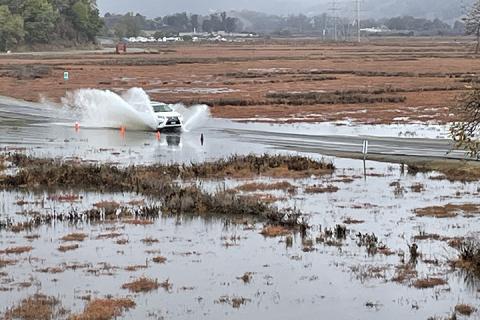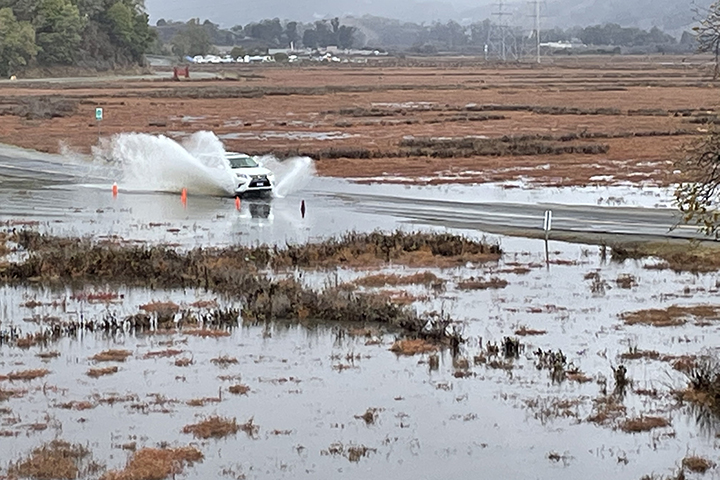
By building on previous and ongoing work at China Camp, this project will provide vulnerability assessments and adaptation strategies to support coastal adaptation practitioners in the environmental compliance and project design of construction projects.
China Camp State Park is one of the few remaining ecologically intact landscapes of the San Francisco Estuary. It is actively used for the traditions of Federated Indians of Graton Rancheria (FIGR) citizens and has a long history of Coast Miwok presence. Since the 1890s, the North San Pedro Road has traversed China Camp to provide critical community transportation needs. The low-lying portions of this road regularly flood with king tides and winter storms, alter tidally restricted marshes, and inhibit marsh migration and resilience to sea level rise. Through a previously awarded 2019 Catalyst Grant, stakeholders including California State Parks, the San Francisco Bay NERR, FIGR, the Friends of China Camp, neighborhood groups, and Marin County and local officials reached consensus to pursue a sea level rise adaptation project that allows for long-term transportation needs, marsh resilience, recreational use, and archaeological and tribal resource protection.
The mix of State and local agencies, recreation and conservation groups, and the FIGR identified two important gaps for choosing and feasibly implementing a project: the lack of knowledge of vulnerable archaeological and tribal cultural resources, and marsh connectivity specific to watershed-bayland interactions. The project team will address the question of cultural resource vulnerability by expanding collaboration with the Coast Miwok tribe, inventorying cultural resources, and modeling sea level rise effects on these resources. The team will characterize hydrogeomorphic connectivity and assess the ecological vulnerability by modeling watershed and wetland processes using existing and new data.
Project Lead Stuart Siegel (San Francisco Bay National Estuarine Research Reserve) gives a short introduction to "Respecting the Past, Planning for the Future: Assessing Cultural Resources and Watershed Connectivity Associated with a Road Modification Project" a collaborative research project funded in 2021 by the NERRS Science Collaborative.
